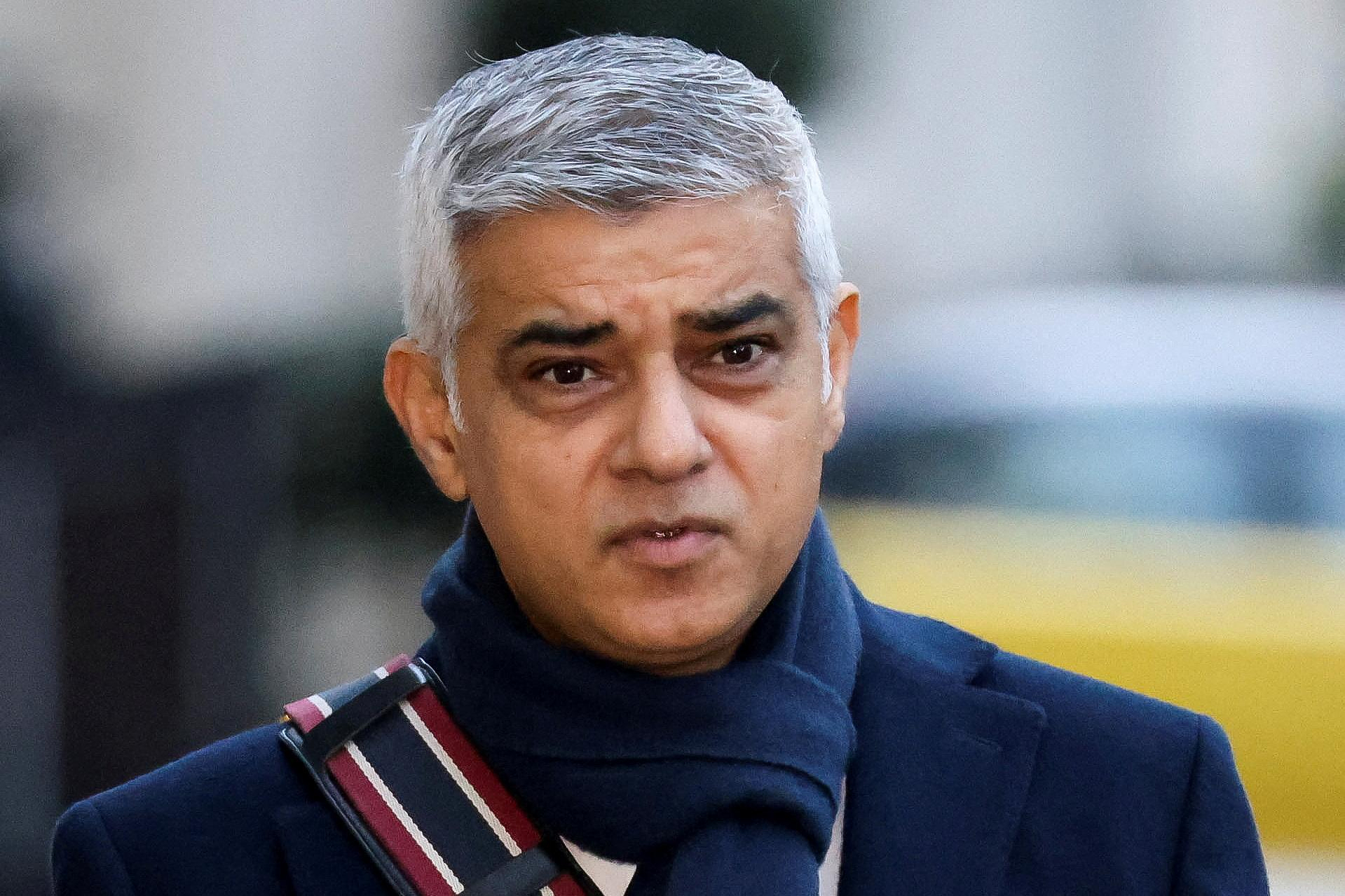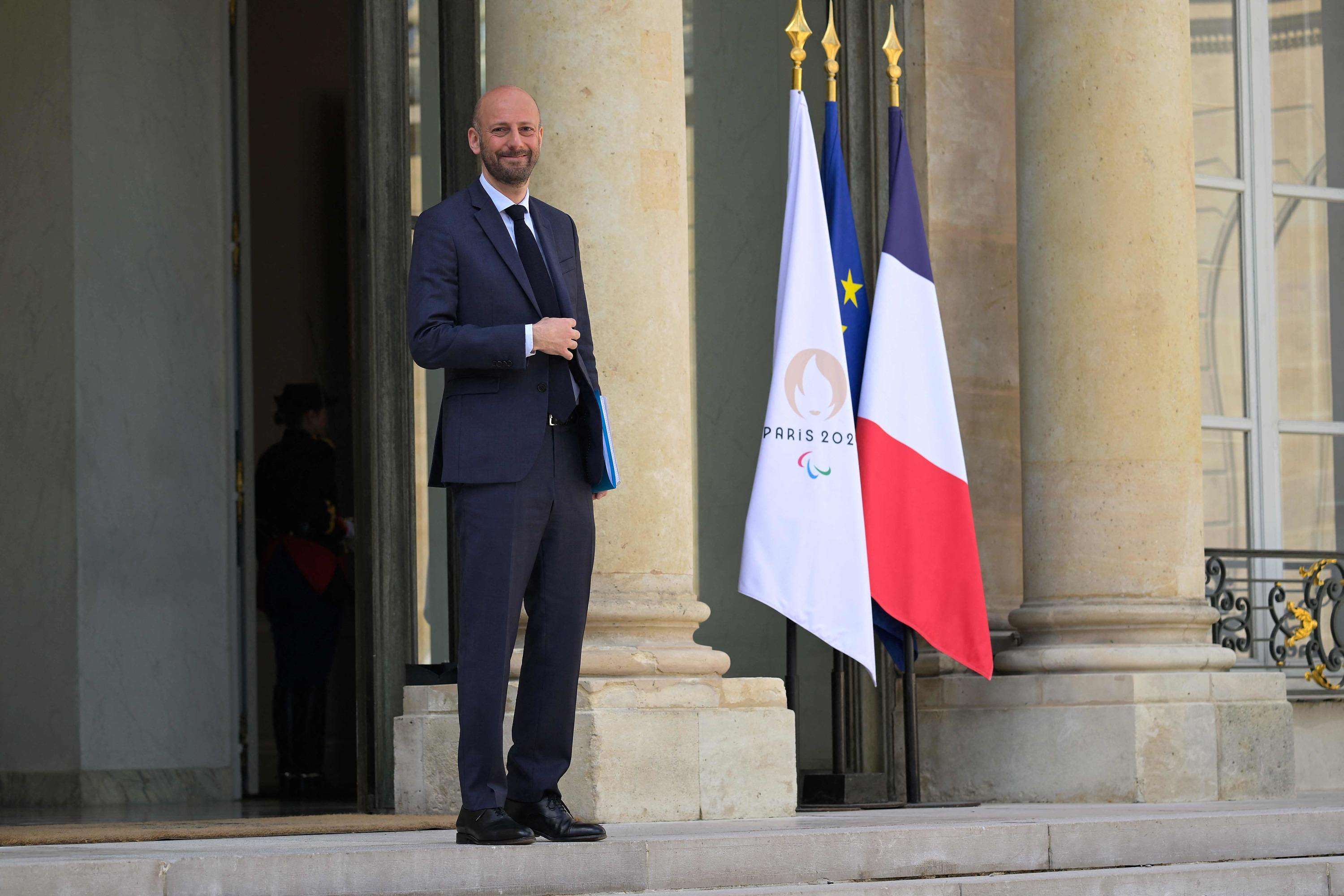Nearly 4 years later, Brexit continues to divide British society. London Mayor Sadiq Khan on Thursday (January 11) called on the United Kingdom to strengthen its ties with the European Union, accusing Brexit of having cost the British economy tens of billions of pounds.
In a statement, the Labor councilor underlines the need to establish “a closer relationship with the EU”, arguing that a new agreement “would boost our economy and help raise the living standards of the British”. This position contrasts with the reluctance of the main political parties, including his own, to discuss the repercussions of the 2016 referendum, a few months before the legislative elections for which Labor is largely in the lead.
“We have to be honest, Brexit is not a peripheral concern that we can leave in the past. It is a key factor in the cost of living crisis caused by inflation,” insists Sadiq Khan, candidate for a third term in the May municipal elections, in this press release which relays extracts from a speech scheduled for Thursday evening. .
To read also Nicolas Baverez: «Le naufrage du Brexit»
According to a study commissioned from Cambridge Econometrics by London City Hall, Brexit has already cost the British economy 140 billion pounds (162 billion euros), including 30 billion pounds (35 billion euros) for the capital. . Cambridge Econometrics also estimates that Brexit caused a loss of two million jobs in the country, including 300,000 in the capital. According to these same data, economic losses for the United Kingdom will amount to 300 billion pounds (350 billion euros) by 2035 if nothing is done, including 60 billion pounds for London.
A spokesperson for Conservative Prime Minister Rishi Sunak responded that British economic activity had “experienced faster growth” than that of Italy and Germany since 2016. The government praises the opportunities offered by the exit from the European Union, touting the free trade agreements signed with countries like Australia or its membership in the Trans-Pacific Trade Partnership.
In April, the budget forecasting body OBR (Office for budget responsibility) estimated, however, that the trade agreement concluded with the EU would reduce productivity in the long term by 4% compared to the time when the United Kingdom United was part of the EU. According to a poll carried out in December by the Opinium institute for the Sunday newspaper Observer, only 22% of Britons think that Brexit has had a positive effect on the country in general, a proportion which falls to 12% concerning the economy specifically.

 B:SM will break its investment record this year with 62 million euros
B:SM will break its investment record this year with 62 million euros War in Ukraine: when kyiv attacks Russia with inflatable balloons loaded with explosives
War in Ukraine: when kyiv attacks Russia with inflatable balloons loaded with explosives United States: divided on the question of presidential immunity, the Supreme Court offers respite to Trump
United States: divided on the question of presidential immunity, the Supreme Court offers respite to Trump Maurizio Molinari: “the Scurati affair, a European injury”
Maurizio Molinari: “the Scurati affair, a European injury” Irritable bowel syndrome: the effectiveness of low-carbohydrate diets is confirmed
Irritable bowel syndrome: the effectiveness of low-carbohydrate diets is confirmed Beware of the three main sources of poisoning in children
Beware of the three main sources of poisoning in children First three cases of “native” cholera confirmed in Mayotte
First three cases of “native” cholera confirmed in Mayotte Meningitis: compulsory vaccination for babies will be extended in 2025
Meningitis: compulsory vaccination for babies will be extended in 2025 In the United States, a Boeing 767 loses its emergency slide shortly after takeoff
In the United States, a Boeing 767 loses its emergency slide shortly after takeoff The A13 motorway will not reopen on May 1
The A13 motorway will not reopen on May 1 More than 1,500 items for less than 1 euro: the Dutch discounter Action opens a third store in Paris
More than 1,500 items for less than 1 euro: the Dutch discounter Action opens a third store in Paris 100 million euros in loans, water storage, Ecophyto plan… New measures from the executive towards farmers
100 million euros in loans, water storage, Ecophyto plan… New measures from the executive towards farmers Books poisoned with arsenic present in French libraries
Books poisoned with arsenic present in French libraries New York justice returns 30 works of art looted from Cambodia and Indonesia
New York justice returns 30 works of art looted from Cambodia and Indonesia Les Galons de la BD dedicates War Photographers, a virtuoso album on the Spanish War
Les Galons de la BD dedicates War Photographers, a virtuoso album on the Spanish War Theater: Kevin, or the example of an academic failure
Theater: Kevin, or the example of an academic failure Skoda Kodiaq 2024: a 'beast' plug-in hybrid SUV
Skoda Kodiaq 2024: a 'beast' plug-in hybrid SUV Tesla launches a new Model Y with 600 km of autonomy at a "more accessible price"
Tesla launches a new Model Y with 600 km of autonomy at a "more accessible price" The 10 best-selling cars in March 2024 in Spain: sales fall due to Easter
The 10 best-selling cars in March 2024 in Spain: sales fall due to Easter A private jet company buys more than 100 flying cars
A private jet company buys more than 100 flying cars This is how housing prices have changed in Spain in the last decade
This is how housing prices have changed in Spain in the last decade The home mortgage firm drops 10% in January and interest soars to 3.46%
The home mortgage firm drops 10% in January and interest soars to 3.46% The jewel of the Rocío de Nagüeles urbanization: a dream villa in Marbella
The jewel of the Rocío de Nagüeles urbanization: a dream villa in Marbella Rental prices grow by 7.3% in February: where does it go up and where does it go down?
Rental prices grow by 7.3% in February: where does it go up and where does it go down? Even on a mission for NATO, the Charles-de-Gaulle remains under French control, Lecornu responds to Mélenchon
Even on a mission for NATO, the Charles-de-Gaulle remains under French control, Lecornu responds to Mélenchon “Deadly Europe”, “economic decline”, immigration… What to remember from Emmanuel Macron’s speech at the Sorbonne
“Deadly Europe”, “economic decline”, immigration… What to remember from Emmanuel Macron’s speech at the Sorbonne Sale of Biogaran: The Republicans write to Emmanuel Macron
Sale of Biogaran: The Republicans write to Emmanuel Macron Europeans: “All those who claim that we don’t need Europe are liars”, criticizes Bayrou
Europeans: “All those who claim that we don’t need Europe are liars”, criticizes Bayrou These French cities that will boycott the World Cup in Qatar
These French cities that will boycott the World Cup in Qatar PSG: “Immense pride in continuing the adventure in Paris”, relishes Zaire-Emery
PSG: “Immense pride in continuing the adventure in Paris”, relishes Zaire-Emery Breaking: everything you need to know about this sport
Breaking: everything you need to know about this sport NBA: Lakers gain respite, Boston responds to Miami
NBA: Lakers gain respite, Boston responds to Miami Top 14: “a very severe red card”, estimates Labit (French Stadium)
Top 14: “a very severe red card”, estimates Labit (French Stadium)

















